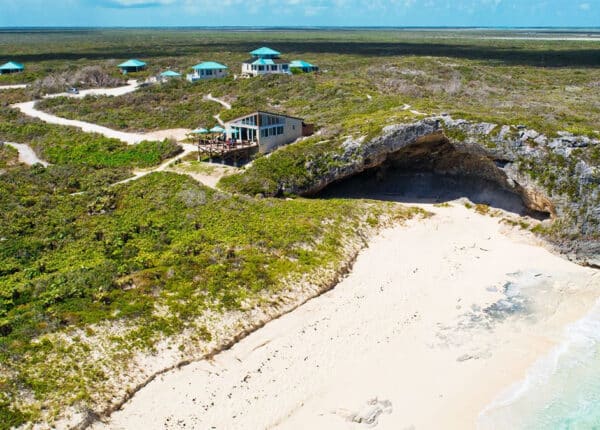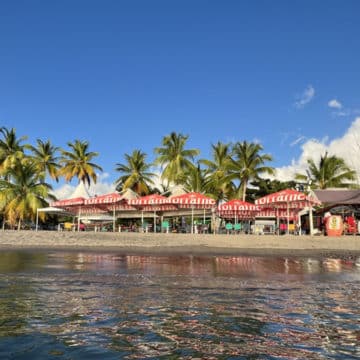Interview with Turks and Caicos Chief Financial Officer Hugh McGarel-Groves
By Alexander Britell
Turks and Caicos has embarked on a series of measures aimed at returning stability both to the country’s economy and the government’s financial position. Now, Chief Financial Officer Hugh McGarel-Groves is cautiously optimistic, predicting that the government’s public finances are on track to achieve a fiscal surplus in the financial year ending March 2013. To learn more, Caribbean Journal talked to McGarel-Groves, who was appointed in September for a two-year term, about the economy, the strength of tourism and the current financial position of the government. (For more on TCI, see our earlier interview with Governor Ric Todd here)
How would you describe the current financial position of the government?
Well, the government’s position hasn’t changed that much – what has changed is that we’ve found a lot more costs from the past that have appeared, that we’ve had to pay. Consequently, we’ve been forced to raise taxes, which will help get us back on track. Even with those additional taxes, it’s only coming in for a few months this year, so we will end up with a much larger deficit this year than we were hoping. Our budget showed a deficit of $8.5 million, and it looks like it will be closer to $30 million this year. However next year, we get about $16 million of benefits from the tax raises, and with the other actions we’re taking to reduce the costs of the civil service, and in other areas as well, to control expenditure, we’re expecting to see a surplus – albeit not the $20 million surplus that was being forecasted previously. So we still have a lot to do.
What are some of the positive signs you’re seeing in the economy?
Well, we’ve got a lot of positive things at the moment. The tourism numbers coming into TCI are substantially up, at least 25 percent from last year, with forward booking up close to 40 percent. This has a direct impact on government revenue, in terms of additional consumption tax, but additional import duty related to more tourists being on the island. We’re confident that by the end of the month, we’ll have passed the 1 million tourist mark for the year, and I think that compares with about 700,000 last year. So the tourism numbers are up, the hotels are doing well, and we’re collecting a lot more in stamp duty. In fact, we’re expecting stamp duty to close to double, which means there’s more land transactions, more property transactions going on. So that’s certainly a positive.
Are there sectors which could be performing better?
The area that isn’t moving, which is what really needs to move for the economy to take off is the construction sector. We’re seeing potential developments in the pipeline, and developers are really dusting off their projects, but they’re not actually building anything yet. So we think that’s probably why import duty is very static. We’re probably still seeing the construction sector falling back, even though the other sectors are lifting. But the economy is starting to move.
What needs to be done to continue improving the economy?
Well, first of all, we need to be careful that we keep our tax base here competitive and don’t get out of line with our competitors. We are willing to offer attractive deal for investors to bring investment to TCI. We can offer attractive deals, with help on the construction and initial operating phase for developments. We’re willing to do that – -we’ve done that in the past but are still willing to do it. So we’re very much open to business in that way. We think that TCI is well-established as an upmarket place to come for vacations. There are a lot of very good resorts here, world-class resorts, and it’s basically a nice place to be. I think the resorts are probably saying to potential investors – that, say, for a condo unit, they believe that the market has bottomed out, and prices are starting to move upwards, and that now is the time to buy. Prices will never be this low again, and I think they’re pushing very hard with potential investors to come in now before it’s too late.






